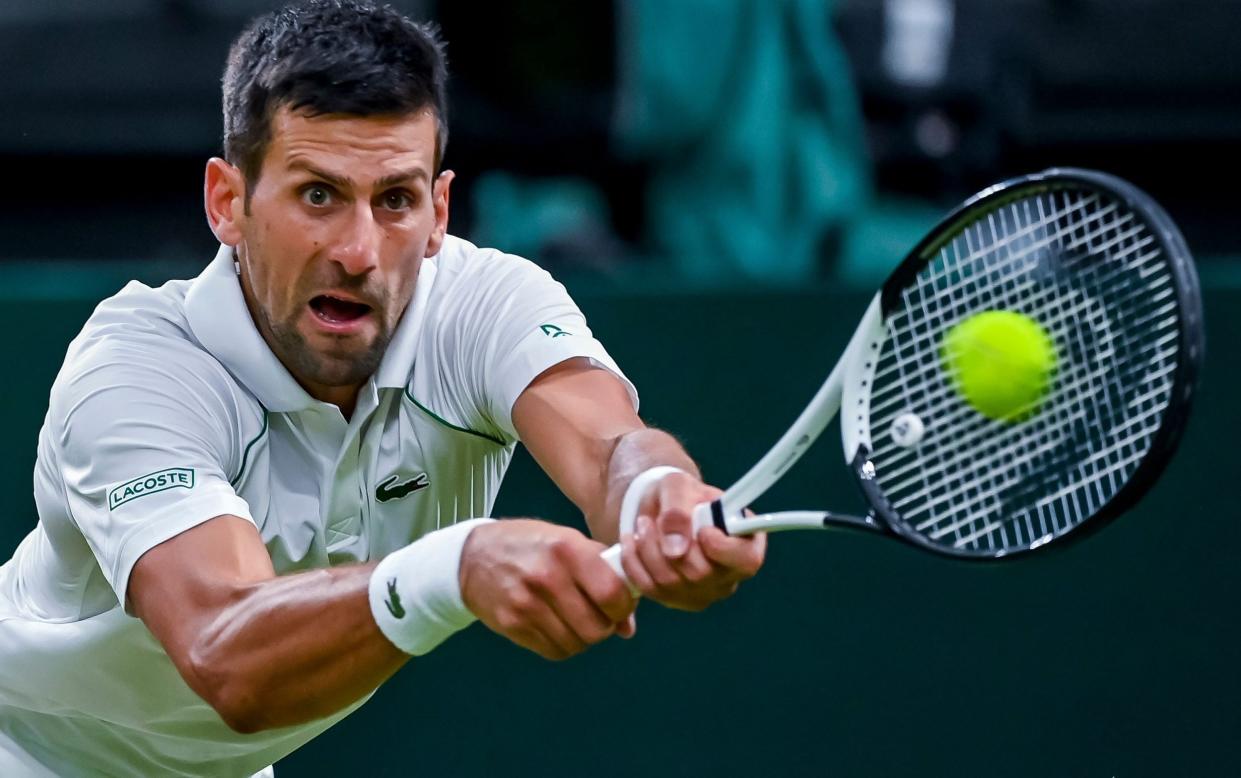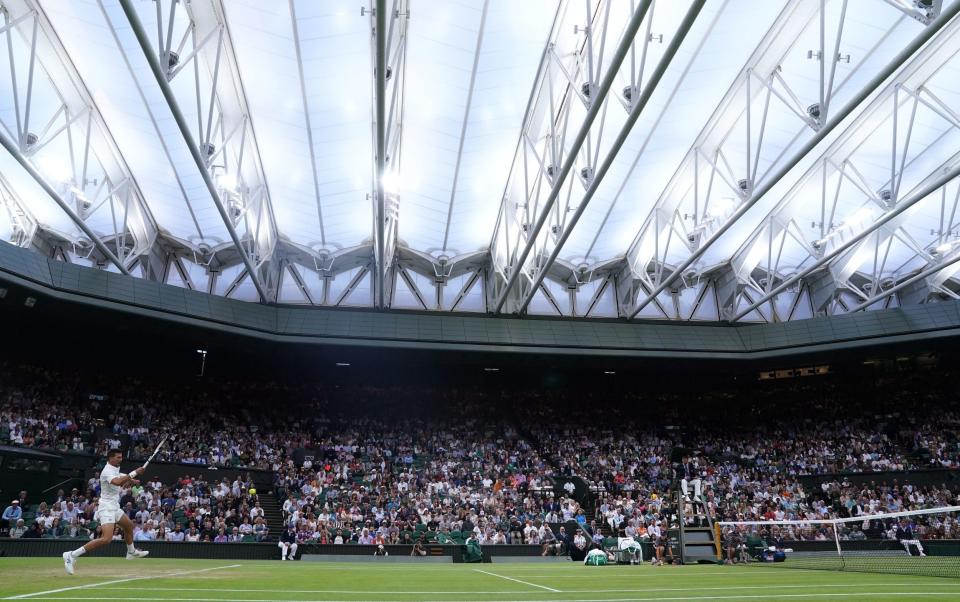Why Novak Djokovic looks unbeatable on grass as he chases Sampras, Borg and Federer record

Defending champion Novak Djokovic came through a late-night four-setter against Tim van Rijthoven to set up a quarter-final against Italian youngster Jannik Sinner.
The Serbian's tie with the Dutch dark horse was not all plain sailing with van Rijthoven taking the second set but the six-time champion then took control of proceedings to wrap up victory.
Favourite for the title, there were three key areas that stood out against van Rijthoven:
Unerring groundstrokes

Djokovic’s Wimbledon day began in the company of some of the greatest grass court tennis players in history and ended with him taking another stride towards the very summit of that list.
That might once have seemed like a surprising destination for a player who is not in the classic grass-court mould of a John McEnroe, Martina Navratilova, Pete Sampras or Roger Federer, but his place among those greats is already assured.
A four-set late night victory against Van Rijthoven was his 25th in a row on the Wimbledon grass and, should he triumph again on Sunday, he will join only Sampras, Federer and Bjorn Borg in the Open era to have won four consecutive Wimbledon titles.
The name Borg in that list is instructive because it shows that there have always been several ways to attain greatness even on the fastest courts. Like the Swede, Djokovic’s biggest technical weapon is clearly the unerring power and accuracy of his groundstrokes, especially the depth he so routinely maintains. It pins his opponents to the back of the court and leaves virtually no opportunity to step in and win the sort of quick points associated with a slick surface.
Djokovic made 19 unforced errors during 2 hours and 38 minutes on court against Van Rijthoven - almost three times fewer than his opponent.
Iron will and concentration

Probably Djokovic’s greatest single attribute and evident in bundles during this win against Van Rijthoven, perhaps most impressively in the second set that he actually lost. Why? Because the way that he forced such a flurry of deuces and break points at the end of that set was what actually prised open his 5-0 gallop to a third-set lead.
That might sound odd but Van Rijthoven only edged the second set with a monumental effort that always felt impossible to sustain. A dip did then understandably follow after that emotional high.
By contrast, Djokovic’s focus and concentration almost never wavers and, before Van Rijthoven knew it, he was in sight of the finish. Having looked like he was facing an uphill task to finish before the 11pm Wimbledon curfew, Djokovic duly raced through the final two sets with the loss of only three games to finish with 20 minutes to spare.
“Thank god - I am lucky,” said Djokovic, when told that play would indeed have been stopped at 11pm and forced him back again on Monday.
Djokovic later called for earlier show-court starts at a press conference that finished only shortly before midnight.
“I heard there is a discussion about moving it a bit earlier,” he said. “It is really an indoor tournament most of the time you are scheduled last on Centre Court or Court One. I think that most of the players would probably agree that we would want the start of the Centre Court earlier.”
Return and second serve

Van Rijthoven had only had his serve broken three times in three matches during what has been a wonderful breakthrough tournament before facing Djokovic. Four sets and six breaks of serve later and he had discovered what it was like to go up against one of the greatest returners of serve in history. Like Borg, Chris Evert and Andre Agassi previously, Djokovic has shown that this single shot can be every bit as deadly on a grass court as booming first serves and volleys.
“You've got to give Novak something different if you don’t want to get broken a bunch of times,” said McEnroe in the BBC commentary box.
Another weapon of significance is Djokovic’s second serve which, just as Sampras famously found, can be crucial to grass court success. Virtually every player will win a healthy majority of the points when their first serve goes in. Djokovic often also does it on his second serve and he won virtually the same ratio of points (69 per cent against 75 per cent) against Van Rijthoven as he did with his first. “It was supreme - it doesn’t get any better than that,” said McEnroe of a player now closing in on joining only Sampras and Federer with seven men’s singles titles.

 Yahoo Movies
Yahoo Movies 
